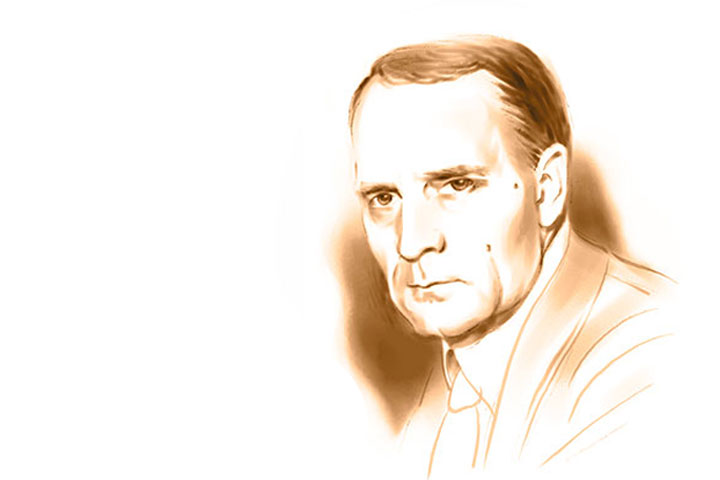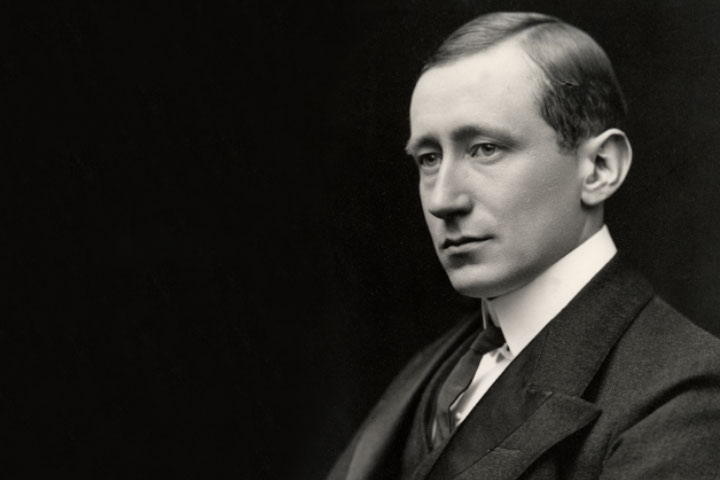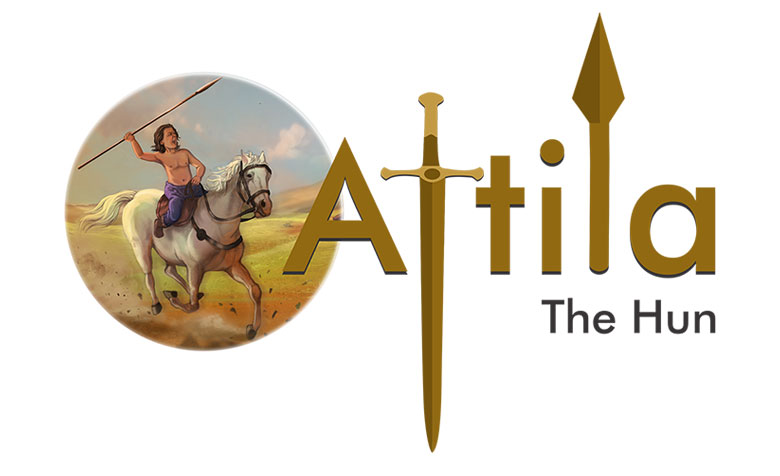

Proliferated into history as a nation of mysterious origins, the Huns were a multilingual, multiracial, nomadic conduit of tribes. They were bound to cattle grazing and were oblivious in regard to national goals. They were a nation of loosely knit tribes, lost in never ending migrations. The warriors would ride before the women who made the skin covered chariots, overflowing with children and the spoils of war, their home. Their long and monotonous wanderings were impassioned by the endless songs they would sing to pay homage to nature and its endless bounty.
Most of the Huns were characterized by murky, yellowish skin, broad chests, long arms and narrow slanted eyes which glittered of the cunning and cruelty that the Huns were known and feared for. The skulls of the warriors were deformed in childhood by a wooden apparatus, united by leather thongs. Their cheeks were seared with hot irons in their youth to daunt the growth of facial hair. Their diet basically consisted of raw meat, which was toughened by having them carried around in sacks between the flanks of their horses or between their own thighs. They were also accustomed to mare’s milk which was easily available. Their weapons were considered to be crude and eccentric even in those times. Their spirit for war was deeply stimulated by a lust for quick, unsustained movement in the pursuit of a paradise filled with pillage and booty.
To the civilized mind, they were not more than barbarians, their appearance and ways not different from the animals found in the wild. The mere presence of their horde engendered enough amount of terror for the people of a region to abandon their homes and villages without the slightest of resistance.
Out of this alchemistic and barbaric past, grew one of the most formidable leaders the world would ever see. Just a mention of his name was enough to strike terror through the hearts of many brave men and empires. It was time for the world to witness the reign of Attila the Hun.

Attila was born in a skin covered chariot, in the valley of Danube around the year AD 359. He was the progeny of kind Mundzuk and one of his many wives. Attila could trace his ancestry to some 32 generations. His family was the one solely responsible in maintaining the integrity of the tribe’s bloodline and their distinct Mongol characteristics.
Attila first learnt to ride on the back of a sheep and in no time his riding skills came to be considered as “extraordinary.” Soon, he had mastered the bow, lance, lariat, the sword and the whip. These were considered as skills of tradition among the horde and the duteous talents for one who was considered to be of a noble rank.
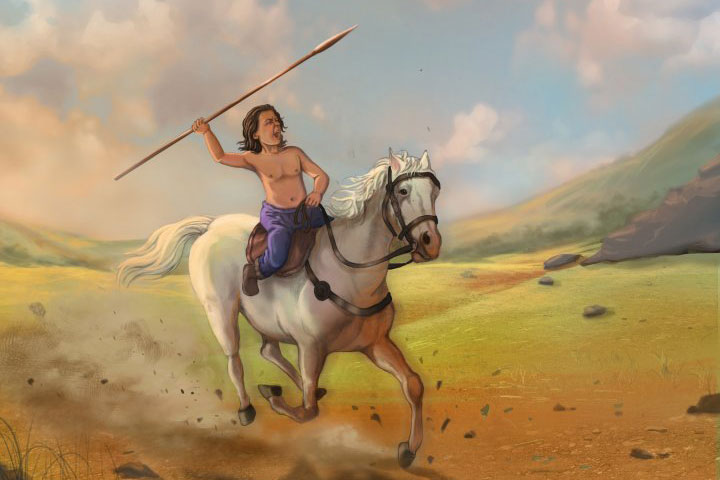
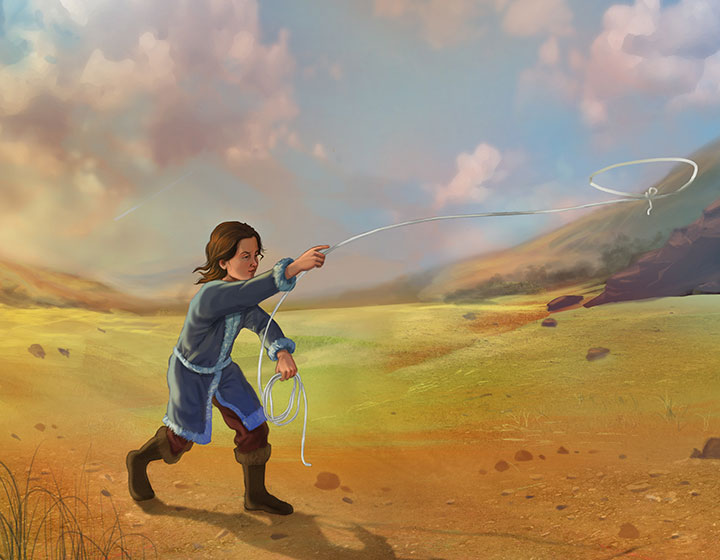
Due to his prodigious skills and strength, Attila had manifested a strong sense of pride in his own personal strength and a great dissent for the weak. He would publicly display his strengths during the many hunting expeditions where he would capture wolves and bears in nets and eviscerate them with a short dagger. He was the jewel of his father’s eyes. But the strong bond and the special relationship that Attila shared with his father came to an end with unprecedented haste. King Mundzuk died when Attila was still a child. This was a very tragic loss for little Attila as he loved his father dearly. After King Mundzuk’s death, Attila was left to the mercy of his viscous and ambitious uncles, most particularly Rugila, the successor to the barbarian throne.
Rugila, in Attila’s perception was weak and naïve. He failed to fathom as to why Rugila would submit the horde’s service to a foreign nation that they could easily conquer. This sense of pride for his horde’s own strength ignited the flame of power in young Attila’s heart and changed the course of his life forevermore.

When Attila was twelve years old, King Rugila sent him as a child hostage to the Roman court of Honorius; in fulfillment of the exchange treaty conserved by the Romans, Rugila attained a youth by the name of Aetius.
This was a malignant plot on the Empire’s part. On one hand, the Empire would teach the attained hostage, in its court, the customs, its traditions and the vainglorious ways of its luxurious life – attributes that these hostages would carry back to their homeland and infest others with; the teachings and roman ways, thus extending the reach of Roman influence into foreign lands. On the other hand, their counterparts, sent by the Empire would learn the ways, strengths and weaknesses of these nations and report back the assimilated information to the court, thus proliferating its abilities in espionage.
Attila was the first hostage to resist the grand and luxurious propagandas spewed at them by the Roman mentors. His flame of ambition towards his own nation, his own people made Attila impervious to the pompous roman ways. He rejected and dejected everything about them. He even tried to arouse the same spirit of resistance among his fellow hostages but they had already been corrupted by the luxury that Rome had to offer. His many attempts to escape this imprisonment too, went in vain. With his hopes of escape and freedom crushed, Attila sauntered the castle as if an animal caged, but desperate for freedom.
His revulsion and loathing for the Empire grew stronger each passing day that Attila was confined within its walls. He longed for his homeland. He longed for the Hunnish ways. He was sent into a forced exile by Rugila. He was betrayed by his own uncle, his own blood.

Now, instead of plotting an escape, Attila turned his attention towards the Roman Empire. He studied its internal and external policies, secretly observed the Romans in diplomatic conferences with foreign ministers. He sized up the empire’s military prowess, studying its strengths, making notes of its weaknesses. He gained knowledge about leadership protocols, diplomacy and other fundamentals crucial to future rulers, from skilled Romans.
It was in this very court of Honorius that Attila conspired his strategy to rule the world. His plan was meticulous and extremely precise, not what one would expect from a nomadic barbarian, but what one would expect from a king. In short, the Romans had created its nemesis and provided him with the tools of their own destruction. The Romans had not even an inkling that their master plan was about to backfire.
Aetius, his counterpart was born into the family of Gaudentius in AD 390. He was the son of "The German of Pannonia,” who went by the titles of “Master of the Horse” and “Count of Africa.” His relationship with his father was as short as Attila’s had been. His father succumbed to his wounds during the revolt of the soldiers in Gaul. He was killed by his own men.
During his stint with the Huns, the diplomatic Aetius developed a close and trusted relationship with King Rugila and other Hunnish nobles. The Romans had trained him well. He became a scholar of the Hunnish ways, learning their customs, their traditions and motives. He was schooled in the mastery of Hunnish weapons. The Huns taught him to ride and to fight as the Huns do. Aetius too, learnt and noted of the Hunnish horde’s strength and weaknesses. This information would prove quite useful to Aetius in the years to follow.

By the time Attila returned, a lot of changes had already taken place in the horde. King Rugila had mysteriously died in AD 434 and the control of the Huns was transferred to Attila’s brother, Bleda, and Attila himself. However, Attila being the younger of the two was often sidetracked while making important decisions.
Attila rose to power by refurbishing and promoting relations with tribal chieftains. Much of the bonding came through the many hunting expeditions that Attila undertook throughout Hunnish territories. He gained the loyalties of these chieftains through many emotional overtures and arousing their instincts for war and sharpening their appetite for easily attained glory and the booty that comes along with it.
It is under mysterious circumstances that Attila was granted reign over the barbarian horde. Some say that Bleda was murdered by his brother to attain the throne, some say he died in an accident while hunting. But if one was to believe the Huns, to them, it was the will of the Gods.
According to their legend, the tribal leaders had gathered to mourn for the deceased Bleda. They were arguing within themselves on who would become the king. Each one was claiming to be the rightful heir to the throne when suddenly a Hun came running into their midst and reported with breathless haste that a flaming sword had just mysteriously appeared in the midst of meadow. Intrigued, the chieftains followed him back to the place of sighting. Upon arriving, they were utterly stunned as the flaming sword jumped directly into Attila’s outstretched hands. Upon further inspection of the sword, its exquisite craftsmanship and strength, it was surmised that the sword was sent to the Huns by the gods as a message to end their dispute. As the sword of god had chosen Attila as its Wielder, The Huns should choose him as their king.
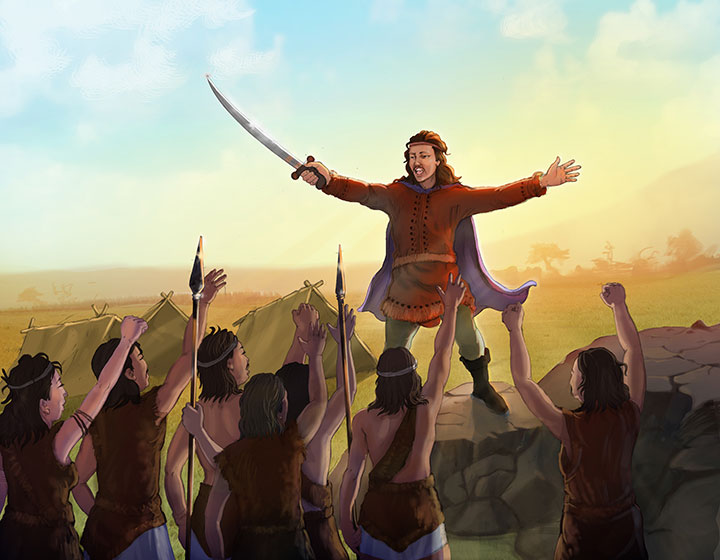
Once Attila became the undisputed king of the barbarian horde, he immediately began the unification of other fierce, independent tribes into the Hunnish nation. He spent days immersed in conferences with tribal chieftains to confirm their loyalties to his unified plan. So hell bent was Attila on achieving it that he ruthlessly executed the chieftains who chose to defy his word. Soon, after a couple of executions, the fear of resisting Attila had manifested so extensively within the tribal chieftains that they would easily give into his demands, whatever may it be, for defying him would result in instant death.
Though Attila leveraged his clout, he was never beguiled by the trappings of a royal life. He drank and ate from vessels made out of wood, sat on a wooden throne in a wooden palace. His attire never boasted of the grandeur or the opulence that his Roman counterparts were known for. Instead he wore a black leather cap pulled down over his eyes and a coat made of black fur.
Attila was deeply admired by the horde not only because of his formidable temper and attitude which demanded of the same, but also for the plain reason that like any great king, he loved his people dearly. His entry into their camps resembled nothing less than a victory march. Women, children and warriors would line up against the path and shout praises to their king. Women would present him with food as he rode past and Attila would accept these gesticulations with prestige. He would hastily reach out for the food without getting of his steed and eat it in front of the presenter as an act of gratitude.

Attila’s rule of the Huns was embedded with swift but considerate justice. He did not act in haste. He provided his people with a unified goal; to bring the Salvic and Germanic nations under their command, to conquer Constantinople and Rome, to march against all the Asian Empires and finally move on to decimate the African front. And if this plan was achieved, the Huns would become supreme rulers of the north south east and west and thus Attila would finally achieve his dream of conquering the world.
Attila’s plan was an ambitious one. It was fired by his boyhood dreams and fueled by his experiences as a child. He was not the ill tempered, disorganized and savage barbarian as he was before. He planned to realize his dream step by step. Every move was crucial and demanded of planning. Trained by Rome itself, Attila chose to wait and watch as the events unfolded. He was waiting for the perfect moment to strike.
The conquests of the Huns under Attila’s reign are said to be legendary. He was tactful in the execution of his plan. His army consisted of around 700,000 odd sorted barbarians united under one single purpose. World domination!
Though the momentum of the Huns pushed through with difficulty at times, victory would most often be theirs without much local resistance. So feared were these viscous, formidable barbarians that villages, at times, would be abandoned in haste on hearing of the horde’s advances. It seemed that only a few could challenge the Scourge of God and his army of demons, but none could win. But there was one man who would not only challenge the unchallenged superiority of Attila, but also prove victorious. A feat which no man alive or dead, had been able to achieve so far.
Through the years of Attila’s rise to the throne, the talented and skilled Aetius had risen in ranks through the Roman Empire. He now commanded an army that would attempt to fight off the terror or die trying.

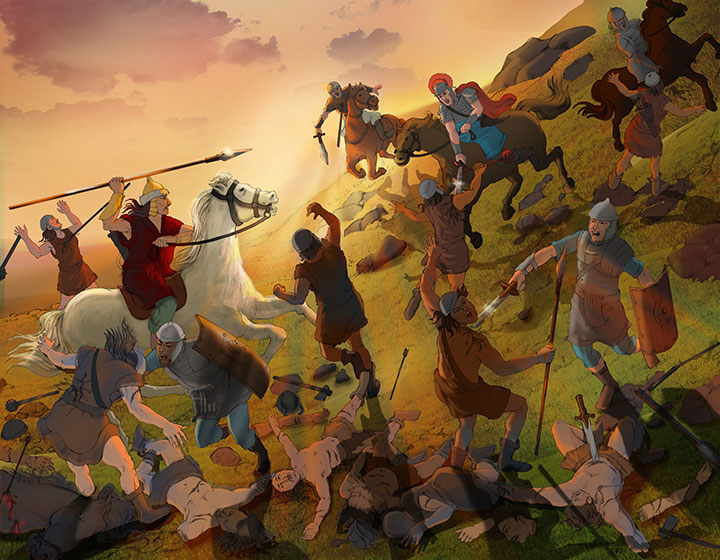
In the years preceding 450 AD, the control of Rome over Gaul and its surrounding provinces had begun to rust. Emperor Valentinian III attempted to marry off her sister Honoria, to a wealthy aristocrat. In a desperate attempt to escape the trappings of an unwanted marriage, Honoria sent a proposal to Attila offering her hand in marriage and control over half of the Western Roman Empire as dowry. Attila, oblivious to the duplicity, readily accepted the proposal and demanded that the Emperor should deliver her to him. Outraged by Attila’s demands, the emperor refused to comply on the spot. Refusal of the King to give Attila what was promised made his blood boil with hatred. He ordered his chieftains to prepare for war.
In early 451 AD, Attila and his huge army marched along the Rhine. Marching along his side were the Gepids and the Ostrogoths who had offered their armies to decimate their enemies. Through the first phase of the campaign, towns after towns including, Strasburg, Metz, Cologne, Amens and Reimes were pulverized, burnt and looted. Then the Hunnish army turned towards the city of Aurelianum(Orleans). The city’s inhabitants shut their gates upon hearing of the Army’s advances and forced Attila to lay siege.
As Attila was busy trying to infiltrate Aurelianum, his nemesis, Aetius was trying to gather forces to challenge the horde’s advances. After many failed attempts and denials, Aetius found solace in Avitus, a very powerful local magnate who had enough hold to gather the other chiefs. Working together, Aetius and Avitus succeeded in securing the alliance of King Theodoric, King of the Visigoths and several other independent nations. Aetius sought to intercept Attila near Aurelianum. But Attila’s scout had forewarned him of the Roman army’s approach towards their position. Attila then contemplated between getting trapped within the city or meeting the Roman army somewhere where they would at least have some form of tactical advantage. He started retreating towards the north east in search of a location which would favour the Huns. Attila reached the Catalaunian plains and discovered such a spot. He ordered his men to be ready to battle and marched towards a ridge that went across the fields. Late in the day, Attila gave the orders to march to the top so that if the Romans somehow defeated the Huns, they could escape into the night if needed.
They marched upwards from the right slope of the ridge, with the Huns in the centre, Gepids on the right and the Ostrogoths on the left. At the same time, Aetius and his men were climbing the left slope with the Romans marching on the left and the Alans in the centre. The race to the top was intense, for the first one who reached the top would have the power to dictate the war. With their army in place, the Huns advanced to secure the top. Aetius and his men too hastened their pace. The Romans were too quick for the Huns. As Attila and his men reached the top, the Romans had already successfully secured the ridge. The battle had started.
By securing the top, Aetius had an advantage over his counterparts. They repelled each wave of the barbarian horde and sent Attila’s men stumbling, staggering and running down the slopes in total disarray. Instead of giving the Huns the liberty to use long range weapons that they were known for, Aetius engaged the horde in hand to hand combat. The bronze helmets and armor shielded the Romans from the fierce stone axes of the Huns. The roman sword dominated over the Hunnish lance, lariats and whips.
The Hunnish army was in sudden disarray. Their ranks had broken, there was confusion and the army was retreating. This was the chance that the Romans needed and they did not hesitate to act. Taking advantage of this sudden moment of chaos, the Visigoths attacked and decimated the retreating units. Attila’s attempt to re-organize his army also went in vain as his household unit too was attacked by the Romans. He was forced to retreat to his fortified camp. Aetius and his men made sure that the Hunnic warriors would follow their leader’s retreat. The war was savage. None of the side meant to take any prisoners and none showed mercy. By nightfall, around 1,62,000 to 3,00,000 Hunnish bodies lay to rot on the streams of blood flowing down the Cataulaunian plains, lamenting of Attila’s defeat.

As Attila retreated, all his confidence and unrelenting energy seemed to seep out of every step that he took. Was he really strong enough? Was he really a true conqueror? His mind itself had become numb from the shock of defeat, his first defeat. Every second that he walked, trying to come to terms with this revelation, was revolting in every sense. Where did he lack? Was it not he who had brought the Huns together, under one singular rule? Was it not he who had led them into many victories and conquests? Wasn’t he Attila, whose name itself bludgeoned the hearts of the bravest men with fear? “Then how did the Roman sword prevail?” he thought. Why wouldn’t their axes cut through the Roman armour? Had their instruments of terror become so outdated? He had got his answer as he walked in contemplation.
Attila safely returned, whatever was left of his army, to the valley of Danube. Once back, Attila set out to make the necessary reinforcements. He turned his interests towards military science, for he knew, to defeat the Romans, to defeat Aetius who knew the Hunnish war pattern as good as any Hunnish warrior would, he would need to let go of the customs and traditions wrought by his forefathers and start afresh. He began the reorganization of his army with new vigour and ambition. His dreams, this time, were not only fueled with his desire for world domination, but a new desire had crawled up his stomach, the desire for vengeance.
The fur garments of the warriors were replaced with leather armours whose borders were made of metal plates. Heavy fortifications were made to their capital city of Etzelburg so that it could withstand long sieges. The nomadic lifestyle had become nothing but a memory. They now had a homeland. They had become civilized. The warriors were drilled in new infantry tactics. Their own protection, now, wasn’t left to the mercy of the long bows, but to the mercy of long sturdy shields. The barbarians had become a civilization!

Attila was still overlooking the transformation of his army when he got the word of an allegiance being negotiated between the Romans and the Persians. Attila knew that if the allegiance was allowed to go forth, he would be in a dilemma. He decided to abandon the further reinforcement of his army midway, to prevent the alliance from manifesting and ordered his troops to march out for war.
Defeating them once, the Romans did not consider the approaching Huns to be any more formidable than their last. To them, the idea of an army of uncivilized barbarians, with no sophisticated weaponry was not a threat, but a matter of incongruous stupidity. They had defeated them before, now shouldn’t be any different. But they were not familiar to the devastation that followed the Huns and soon they would witness to the fury of this “barbaric” swarm who were much more disciplined, organized, powerful and formidable than before.
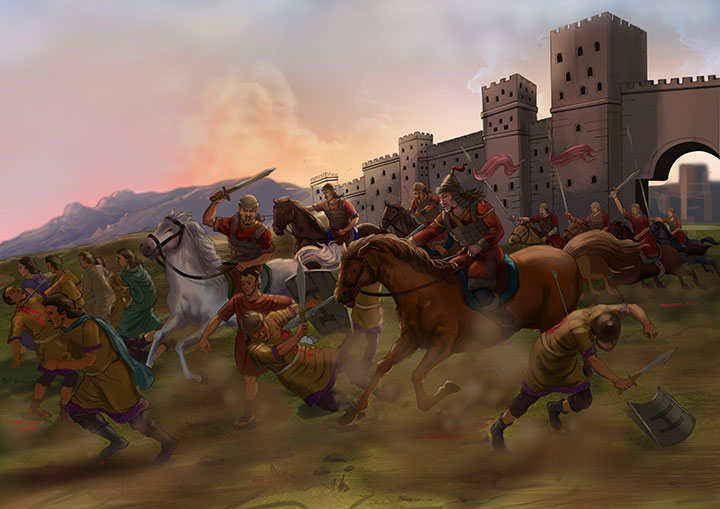
The Hunnic invasion of Italy was unobstructive and swift. Moving on, they marched on to the city of Aquelia, which, for some reason, had seen more invaders than they had seen sunrises. Responding to the horde’s approach, the Aquelians closed and barred their gates to resist the Hunnic army’s barrages. The Aquelians were the first to witness the new and improved ways of tactical warfare of the Hunnish army. They soon learnt that the Huns weren’t disorganized and undisciplined and their weapons weren’t unsophisticated as before. They were now disciplined, better armored, well equipped and precise in the execution of complex military movements.
The siege was a long and difficult one for the Huns. The rations were dwindling and so was the Hunnish morale. But when the warriors attacked on an apparently good omen (a stork and the brood leaving the city towers), victory was instant. The Huns broke through the fortifications, and raped whatever was left of the city’s dignity. Once Attila and his army was satisfied of the loot and pillage, they shifted their sights towards Rome.
The Aquelians who had somehow managed to flee from the terror, told the Roman empire of Attila’s humongous army approaching Rome, ravenously and methodically. The Romans were in a predicament. They had not foreseen Attila’s desire for vengeance. They had not expected of the barbarian to make a comeback, being more formidable than before. The new improved and sophisticated army was moving towards Rome, and with every step they took, the realization of their immediate doom became apparent. It seemed, death itself, was walking among them, in hopes that the scourge of god would provide him with enough destruction that it could feast upon.

The Emperor needed to act in haste. They again could not rely on Aetius who had since fallen from grace. The court contemplated between offering gold for ransom or offering the hand of Honoria, the woman who he waged war for the last time. The emperor knew that none of this would satiate Attila’s thirst for blood, his thirst for vengeance. They knew that he wanted to avenge his defeat at Chalons and nothing could pacify his wrath.
In utter desperation and without consulting Aetius, the Emperor asked for Pope Leo I to intervene and attempt to negotiate with Attila. He gravely hoped that perhaps through respect for the Pope, Attila would show some mercy and spare Rome. The whole Empire forced to kneel to an apparent Barbarian.
The Pope agreed and went to meet Attila. The duo sat for hours in discussion. It is believed that the Pope told tales of the diseases which were plaguing the city and the perils that he faced if he chose to ransack it. It is also believed that St. Paul and St. Peter appeared in Attila’s dreams and threatened to strike him dead if he chose to attack Rome. What actually happened between the Pope and Attila is all left to speculation.
But the very next day Attila called off his army and turned northwards. This was not before he demanded large sums of gold and royalties of the Romans which were instantly met. The city was spared and Attila peacefully returned to the valley of Danube avoiding further skirmishes.
But the trouble which Attila had spared Rome was waiting for him at his own doorstep. The six sons that he most favoured were getting cranky by the day due to the simple fact that they had not yet received their own kingdoms to rule which Attila had promised. They were angry that the king had returned empty handed, without conquering any land for them.

Maybe it was his progressing age that was responsible for diminishing his ambitions for world conquest or maybe he had calmed down after willingly sparing Rome knowing that he had the power to decimate the entire city if he wanted to… whatever be the reason, world domination was no longer the priority of this great conqueror. The warrior within was turning towards diplomacy.
After having willingly spared them, Attila resumed negotiations with the Romans. Such actions were unfamiliar in his court and Attila thought he needed to reconfirm himself as the king of the Huns. And thus resumed the killings of those tribal chieftains who chose to defy the king’s word.
Such one story was of the Germanic King, Gunther, and his daughter, Hildico. Gunther was a good king who had managed to create a kingdom around the city of Worms, within the Roman empire. He had went into an alliance with Attila so that they could help each other in the war against Rome. Unfortunately, little did he knew that this alliance was going to prove fatal not for Rome, but for himself.
Somehow Gunther managed to displease Attila by defying his proposal. Enraged by the defiance, Attila ordered for the immediate execution of the German king. Upon hearing of her father’s death sentence, Hildico rushed to her father’s aid. She approached Attila to beg for mercy. Attila was struck dumb in the first meeting itself. He was mesmerized by Hildico’s beauty and grace which knew no bounds. Nevertheless, Attila went ahead and executed the king and forcefully married his daughter.
The wedding was a grand event. Everyone hoped that this new union would bring about a change in the new ideologies of the King and he would resume with his dream of world domination, thus giving his sons new territories to claim. But no mind was able to predict what would happen next.
After the wedding, which is still held in awe, Attila and his new wife retired to their chambers and the night passed. Late next morning there was a bit of disturbance in the court as Attila had not yet arrived. The servants were getting nervous. Some of them went to call on the king. When their knocks and shouts went unanswered, the servants smashed opened the door and their deepest fear was confirmed.
There lay their king, naked, with just a fur coat underneath his body in a pool blood. His body was motionless and lifeless no more than a rock. Their king had died and Hildico sat in a corner of the room crying, probably in shock of the events which took place through the night. And the effects of it, still reverberating through the corpse of the king.
Some historians believe that Hildico slew her newly married groom to avenge her father’s death. Or maybe one of Attila’s ambitious sons was responsible for it. Some also speculate that Attila died of natural causes, mostly due to a brain hemorrhage due to the extravagant festivities.

Attila’s whole life was filled with hatred, cruelty deception and savagery. But what we really should understand is, what else would one know if not for the things which revolved around one’s childhood? Attila had grown up being accustomed to such and the same reflected through him in his worse. He was considered as a villain and a plunderer by the Roman Empire when they were the very ones who planted the seed in Attila’s mind. His attempts for world domination considered to be inhumane even though every nation then, desired the same. Several accounts show how merciful, humble and benign Attila was towards his people. He just did what he needed to do. The Huns knew that their tribe would never be the same again without their great king.
The burial of the great king was as colourful as the wedding had been. His body was transported to an unknown location in the valley and put up on display in a tent made of silk. His warriors would enter the tent and rip their hair and mutilate their own faces to ensure that Attila was not mourned by the tears of women, but by the blood of his warriors.
It is said that he was laid to rest in a triple layered coffin, made of gold, surrounded by silver and then finally strengthened with a layer of iron. The gold and silver symbolized his prowess as king and the layer of iron denominated his strength and control over many nations. The burial place, though many speculate, is yet a mystery which has eluded us since.
After a year of Attila’s death, the Huns’ subject tribes broke free one by one from the nation which was run by his three strongest children. Through the events which were to unfold, all of his children met an untimely death and none could bring back the level of respect and fear that the Huns commanded under Attila’s rule. They had turned into barbarians again and their race vanished after just 16 years of Attila’s demise. The only thing that would be remembered of the Huns is Attila and his conquests. For he once said, “There where I have passed, the grass shall not grow again.”
Next Biography








